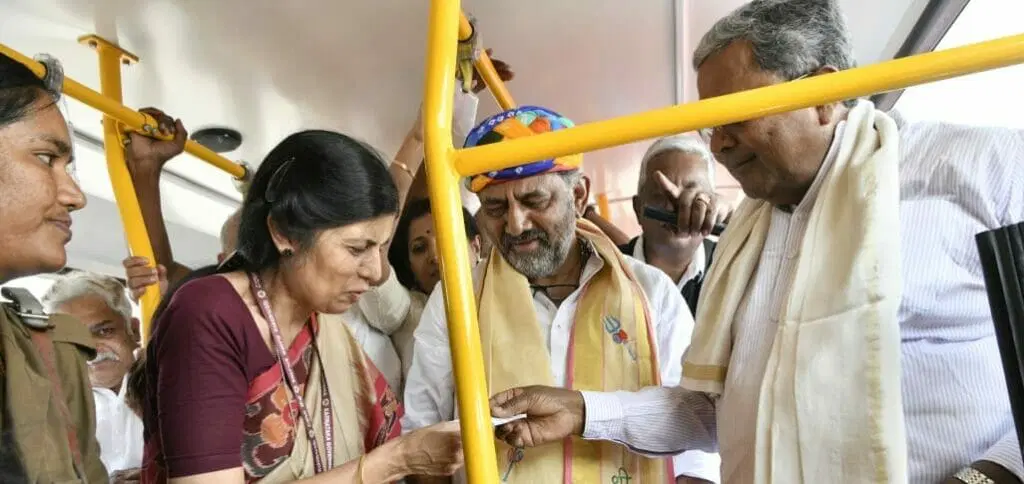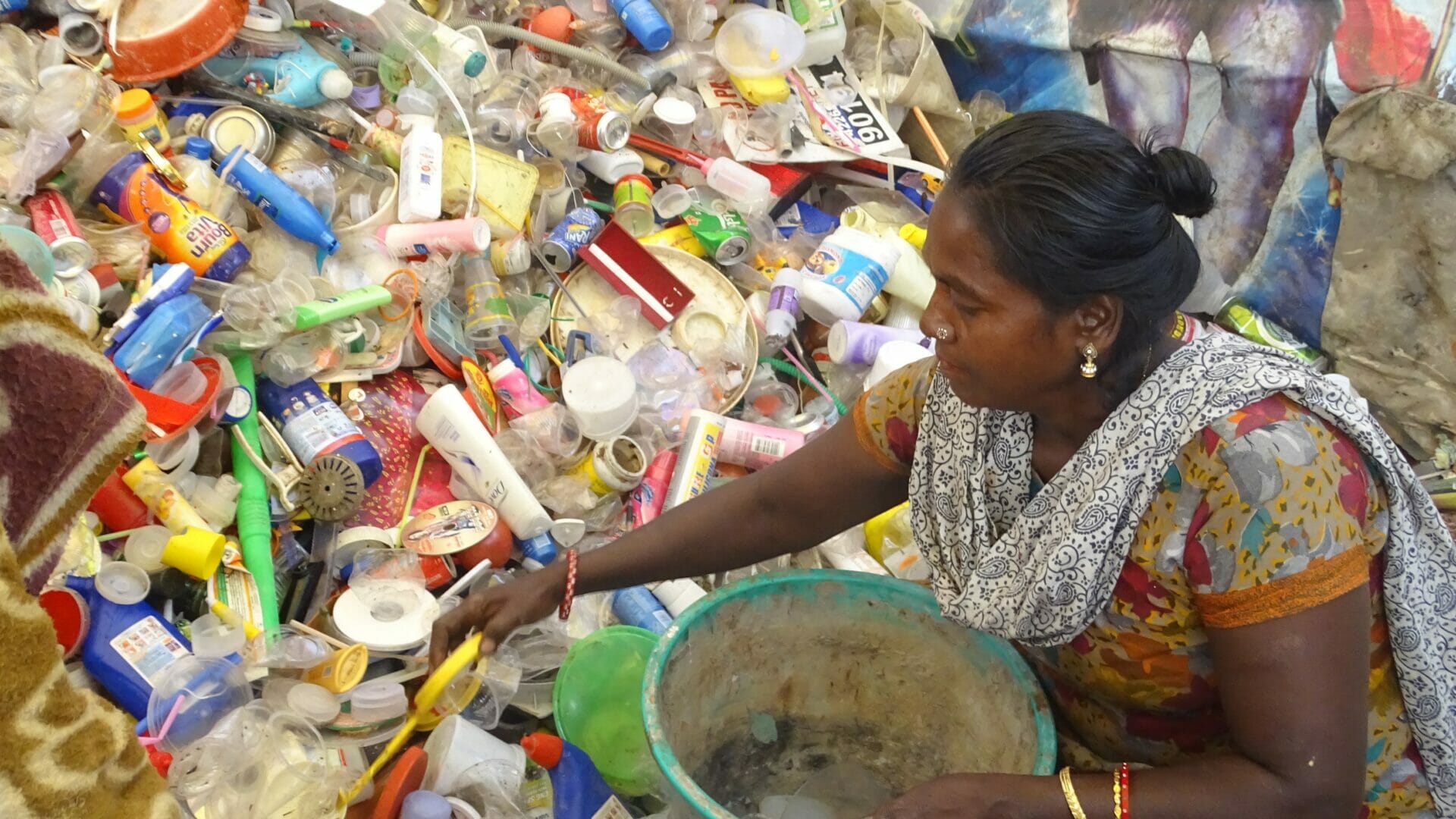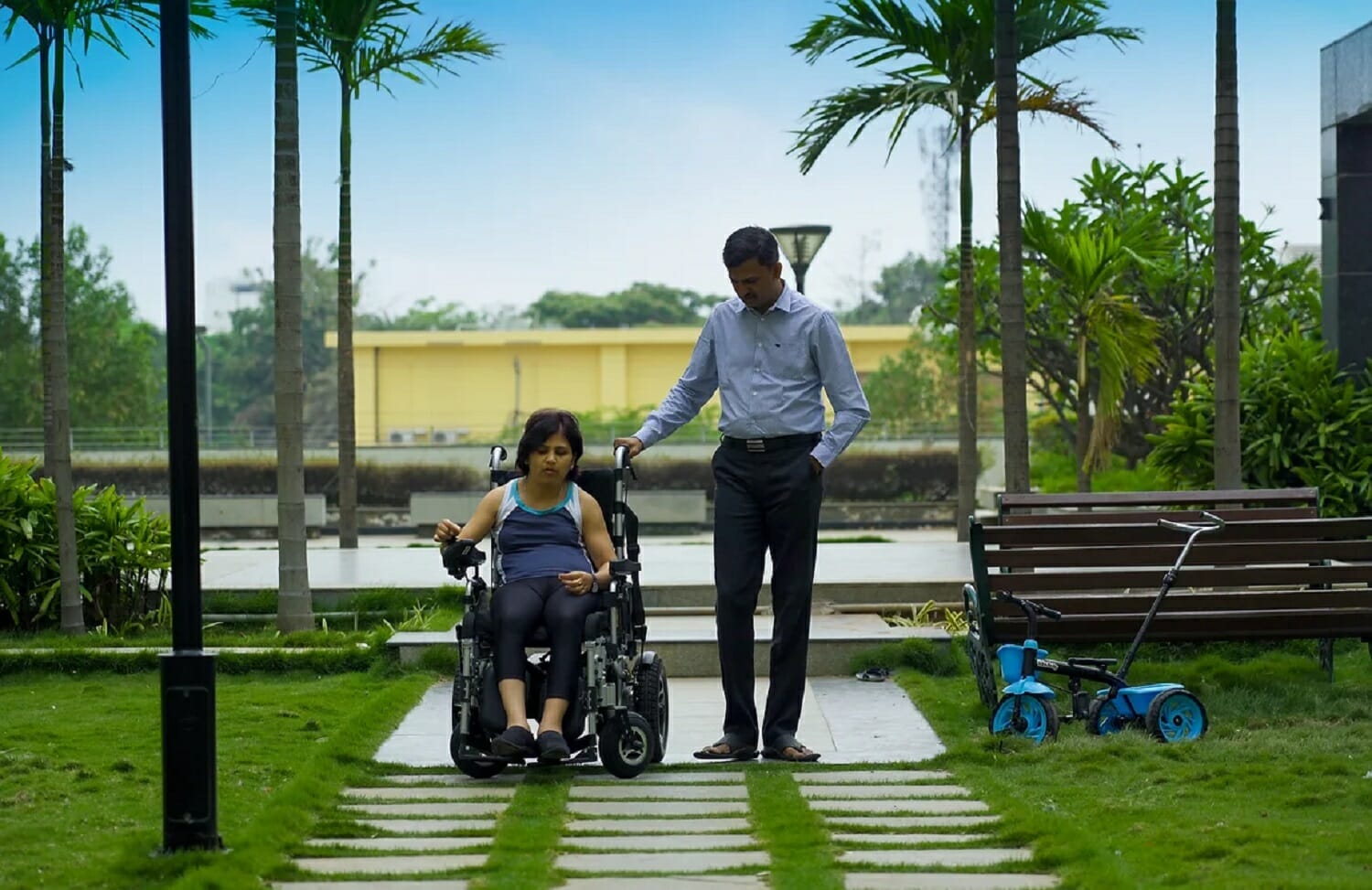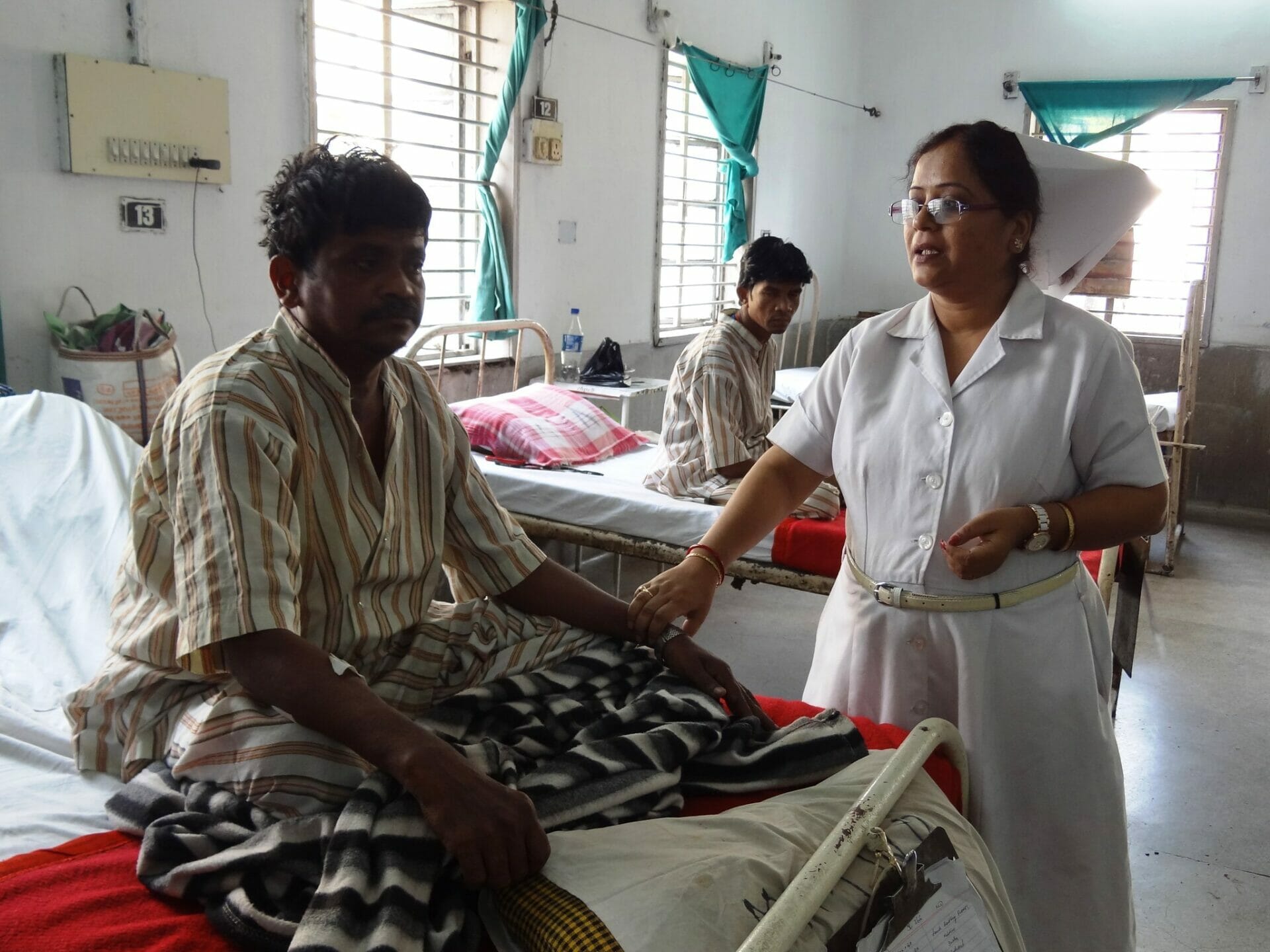“I know my identity is much more than bipolar disorder. It is just one part of my life”. Those are the words of US-based scientist Dr Yamini (name changed), who has continues to live her life with conviction, while living with Bipolar. On the occasion of World Bipolar Day (March 30), Citizen Matters interviewed Dr Yamini on how she has coped with life and her illness. And how others can learn to cope with similar conditions.
Dr Yamini graduated in Engineering from one of India’s top Indian Engineering institutes, and moved to the US where she completed her PhD. She has been living with bipolar disorder for more than a decade now. But that has not stopped her from successfully managing her personal and professional life. She talks at length about life, being bipolar, mental illness, support system and ‘acceptance’.
Excerpts from the interview:
When and how did you come to know that you have bipolar disorder?
In retrospect, I can say that there were many instances during my teens which might have pointed to me having bipolar disorder. But I did not flag it, nor did my family. It finally dawned upon me and my family when I was 26-27 and was in acute psychosis. I was diagnosed with bipolar at the height of manic episodes. Later, I realised that maybe, I did have some depressive and manic episodes during my school and college days too.
What Is Bipolar Disorder?
A condition of extremes, where one feels like being stuck on a roller-coaster ride that takes them through highs and lows at lightning speed shifts, so that sometimes it might feel as though both exist simultaneously.
The other side of duality, where depression and mania/hypomania are experienced by an individual cyclically or in a mixed state.
What were you doing at that point in life, when this realisation hit you?
As I said I was about 26 or 27. I had finished doing my PhD and I was living by myself. I was married but my husband was living in a different city.
You said that you may have had bipolar episodes even during your teens. What happened during that period?
There were instances when I used to feel fiercely agitated, and other times I used to go into a shell and feel sad and depressed. I would be extremely emotional, cry a lot and sleep a lot. But I just thought that was part of growing up. In the sense, you know, that as teenagers, we anyway go through a lot – the adolescent phase where you’re learning about life, the world and about relationships. So I just assumed my mood variations were merely a part of that.

And, when I was pursuing undergrad studies, there was one episode where I had a sort of panic attack and it was more serious than some of the earlier ones. As I was studying far away from my hometown, my family was informed. My mother came and took me back home. I had to take some time off from my studies.
Read more: When one is a caregiver to a parent with schizophrenia: A personal account
And you did not take medical help even then?
We thought it was a one-off thing but now, as I said, looking back I feel those were the signs. The fact is that it’s very easy to miss some of these signs till something catastrophic happens and I think that is where awareness goes a long way.
Who was there from your family with you, when you started having severe bouts of bipolar episodes?
I was in America and my husband was living in another city. He came rushing but was completely clueless. He called my parents in India and told them about my psychosis. They immediately told him to hospitalise me. They were aware of some of the traits of bipolar because of some exposure to it among family members.
Can you explain what you mean when you say psychosis?
These are medical terms and generally people do not understand them. I can say what happened to me and that will give a real-life example of what the manifestation of psychosis can be like.
So far, I have had two psychotic episodes. In the bipolar disorder that I faced, there was a manic episode followed by a depressive phase. These happened separately. During the manic phase, I got completely disconnected from reality. I experienced delusional persecution and fear. Fear of someone coming after my life, after the lives of my close ones. It was extremely traumatising because, with every action, I thought I was the cause of something terrible happening to my family or friends.
The fact is that a person experiencing bipolar disorder begins to believe that this is the reality that one is living through, whereas factually, it is not the reality. In the manic episode, one is not able to differentiate that the thought is different from reality. It is as if one becomes that person and there is no other alternative that one sees. It is complicated and frightening for the person having bipolar episodes and for the family.
Is this the persecution part of psychosis?
Yeah, and it’s extremely traumatising. There are other ways in which it can present itself. This is all delusional. And sometimes people have hallucinations. They can hear voices, they see things that don’t exist. These are signs of other mental illnesses too, but in manic episodes, they are present in different forms.
What did you face in your two psychotic episodes?
The first bipolar episode brought persecution, but the second episode was delusional. I lived in grandiosity then. Elation and thinking everything is wonderful. The world is perfect. God is speaking through me. This grandiosity was followed by depression, and fear of being incarcerated.
Once you came to know the reality, how did you and your family take it?
Acceptance. I accepted it — that this is going to be with me for the rest of my life. Acceptance makes life beautiful. I’m on medication but that’s a small price to pay. I make sure I don’t get into psychotic mania-depression again. I am not saying that with medication, psychosis or manic-depressive episodes will never happen. I had a psychotic episode though I was taking medication. Perhaps the intensity was less.
Are you still working?
Yes, I always worked. Except for the time when I fell sick. At that time I was associated with a very reputed firm. Presently, I am working in a different organisation.
Has bipolar disorder changed your life?
Definitely. My life changed in ways that I could have never imagine. But I’ve learnt to navigate life around bipolar disorder. I don’t want to call it a sacrifice because everyone goes through hardship in life and it’s just a learning experience. It has impacted my personal and professional life. But that doesn’t mean it’s all or none; it doesn’t mean that you have to throw it all away because life has not gone as per your plan.
For instance, one of my triggers to anxiety is driving on the road, because there are a lot of elements that come into play when you drive. There’s a lot of uncertainty: do I have to change lanes, or will this person cut in front of me, and so on. If you’re driving to a new place one has to think, do I have to take a left or a right turn? These are all small decisions that you have to make or that I have to make every day, when I drive. But these small decisions affect me in a way that I experience grave anxiety. This anxiety feeds into a stress point that could induce a manic break. I don’t want to go there. We don’t want to go to a point of no return.
So when I’m unstable, I make sure I don’t drive. I make those adjustments but I feel we should look at the bigger picture. It’s not all roses but at the same time, it’s not all thorns either. I still do drive. I drive to nearby locations. I drive to pick up or drop off my two-year-old daughter at daycare.
Read More: Loneliness: An urban epidemic that carries the same risk as smoking 15 cigarettes a day!
Similarly, I have a job that I’m doing very well. Though my training is as a lab scientist, I had to give that up. Now, I have opted for working from home. I had to change my career trajectory and had to rescale myself, but I don’t think of it as a big hindrance. I have accepted the way life is taking its course.
But yes, it took a long time for me to accept the change.
So, what you are saying is acceptance makes a difference?
Yes, it does.
You have been a meritorious student and a successful scientist. You have a job. But several people have to give up their jobs because of mental health issues. Companies do not want to have an employee who is living with mental illness. So they become unproductive and this is heartbreaking for the person living with mental illness, as well as for the families. What do you think about this?
I strongly feel that people with mental illness, people like me, can and do contribute very positively to any possible profession. I don’t know the details of how this works in India but in the US, there is a question asked about whether one has any mental illness or disability. A list of examples are given as what counts as disability and I always notice that bipolar is included in it.
There are three ways you can answer that question – you can say yes or no or I do not wish to answer. I have always clicked on ‘I do not wish to answer.’ I don’t know how Human Resources (HR) people interpret it. But yes, society still has a long way to go in terms of accepting people with mental illness. I have no shame. I have not been labelled or stigmatised in the work place.
In general, have you ever faced stigma or discrimination?
A lot of people associate mental illness with the person. But they are two different things. See, if someone has cancer, are you always thinking about their cancer and not talking to them for that reason? No, but when someone has a mental illness that’s only what they’re able to see. I think that’s because of a lot of misconceptions and fear resulting from how people living with mental illness are portrayed. There’s hardly any positive awareness about mental illness. There is a lot of fear.
You are one of the fortunate ones to have an immense support system – your parents, friends and husband. So how are you contributing to changing the perspective around mental Illness?
I feel living my life with conviction, doing what I was trained to do is my way of spreading positivity and changing the perception of people about mental illness, particularly bipolar disorder.
Let me reiterate, people with mental illness can also accomplish anything that they want. There is a long way for the professional world to accept people with mental illness, especially in jobs where the thinking aspect is involved. For example, I studied as a scientist, so in my day job I have to make decisions; I have to think and analyse. It’s very easy for companies to think, how could a person with mental illness do a ‘thinking job?’
But I think if someone doesn’t have legs, running a marathon race may not be the obvious career choice for them. Right? But still, some people do go on to run marathons with the support of crutches. Or events are specifically designed for people like that.
So I think one has to find what works best and do whatever it is within that ecosystem. I feel there should be active encouragement, not just passive acceptance or denial in its worst form. Opportunities ought to be created by companies for people living with mental illness.

Did your equation with your husband change after your bipolar episode?
We both met in college; had similar hobbies, travelled to the US, and completed our PhDs. He has seen the best of me and the worst of me. Today, he is my biggest support system. I was, and am still pursuing multiple hobbies. I love dancing and my husband plays the violin. We travel a lot and have a bunch of understanding friends.
You are a mother, too. How difficult was it to decide to have a family because of the medications?
Very difficult. We consulted many doctors. Some did advise against having a family. Until today I am on three different types of medication – a mood stabilizer, an anti-psychotic and an anti-depressant. These medicines have different side effects. During pregnancy, I made sure to be in constant touch with a psychiatrist and a therapist, and a gynaecologist. My husband, also a scientist, looked through a lot of scientific literature to see the chances of having a healthy pregnancy along with the medications. My husband kept saying, “Don’t worry. Everything is fixable.”
He’s a very positive person. Fortunately, everything went well and we have a healthy child.
How to deal with mental illness?
- Seek mental health support and do as the psychiatrist advises.
- Learn to recognise and manage triggers through inner work
- Know that Bipolarity is only a condition, not an identity
- Find a community
How much credit would you give to caregivers and supportive family for your recovery?
Immense. They all were and are supportive and positive. I am so blessed and lucky and grateful for the kind of support that I have and I think that played a very crucial role in my recovery. Just as it’s hard for the patient, it’s hard for caregivers, too. My husband saw me when I was doing so well in life and he saw me when I couldn’t even get up to brush my teeth or take a shower. I would forget everything. Like in a manic episode, one forgets the reality and does embarrassing things, but my caregivers, extended family, and particularly my husband understood that it was the illness that was manifesting itself thus and making me do bizarre things. I must admit that a caregiver’s life is extremely difficult and often lonely.
Here, I must emphasise that one must understand that life is whole; life is not defined by mental illness, and that life is multi-dimensional. There is no shame in accepting mental illness.
What would you say to people who are living with bipolar disorder?
See, illness is a part of life and we have to separate the two, or learn that mental illness can also be a part of our lives. We can say okay, this is a part of who I am, this is my identity and I will live with it. Accept and do what works best — if the medication works, it is fine; if therapy works, take therapy sessions; if journaling works, write down your thoughts or if listening to music works, listen to music. To each, their own.
Thank you...
It was wonderful talking to you and I thank you for the opportunity to share my journey. If my story can impact even one person then I think it’s been a worthwhile attempt. To conclude, I want to say that there’s no one solution. There are many ways in which bipolar disorder manifests. I always remember that there’s no shame in accepting mental illness. I know my identity is much more than bipolar disorder. It is just one part of my life. ▀










Very insightful and touching interview. Several aspects of the illness were revealed in a very simple manner making a connect with the person living with Bipolar Disorder.